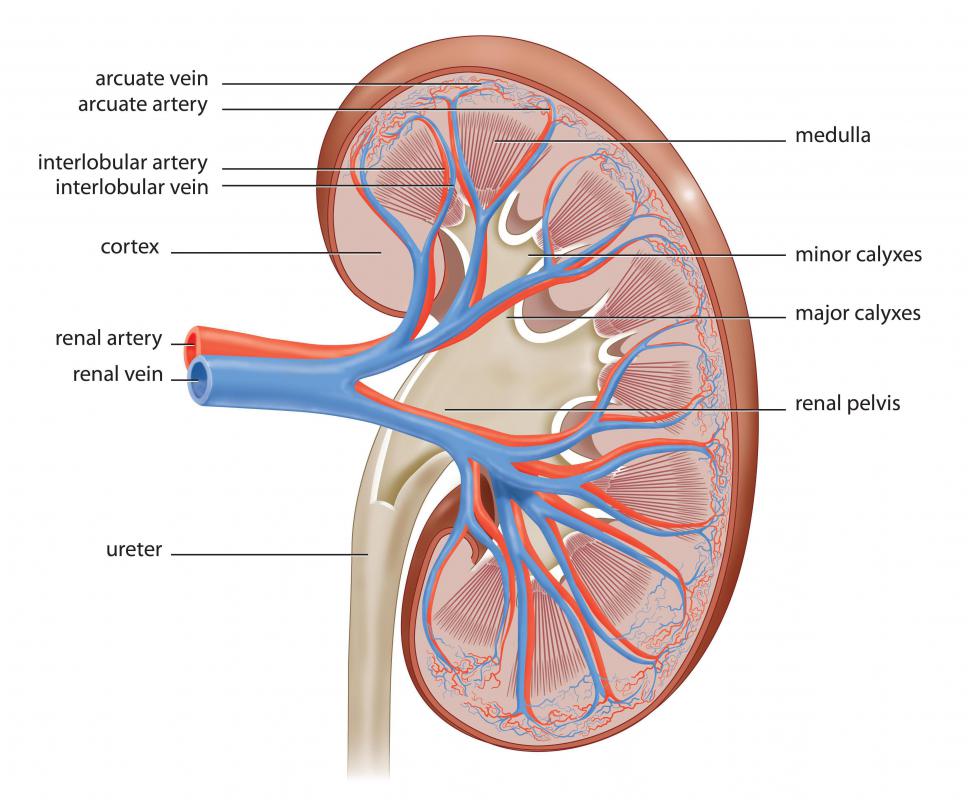At WiseGEEK, we're committed to delivering accurate, trustworthy information. Our expert-authored content is rigorously fact-checked and sourced from credible authorities. Discover how we uphold the highest standards in providing you with reliable knowledge.
What Is a Ureter?
The ureter is a small tube that connects a kidney to a urinary bladder. Humans, along with most other mammals, typically have two ureters, with one coming from each kidney. These ureters run down the back of the abdominal cavity before connecting to the urinary bladder. Kidney stones traveling down one of these tubes can be very uncomfortable or painful, and it can cause inflammation in the area.
Salt and excess water are filtered from the blood by the kidneys. These bean-shaped organs are located on either side of the back of the abdomen. Ureters are the muscular tubes that lead from each of the kidneys to the urinary bladder.
Each ureter is typically quite small. In an average adult, the ureters are about 3 millimeters (0.12 inches) in diameter. They may also be up to 30 millimeters (1.18 inches) long.
The ureter leaves the kidney via the renal pelvis. This is a funnel-shaped part of the kidney. It is located near the center of the organ.

Ureters are typically made up of three layers. The outside layer is made from supportive connective tissue, and it is often known as the fibrous coat. The middle layer is made from smooth muscle, and it aids in peristalsis, which helps move the urine from the kidney to the bladder. Inside a ureter, a layer of smooth tissue secretes mucus, which helps line and protect the tube.

After leaving the kidneys, the ureter runs down the back of the abdomen. It then connects to the urinary bladder. The two ureters connect to either side of the top of the bladder, which is the organ that stores urine until it is expelled from the body.
Urine is expelled from each kidney into its respective ureter. Once it enters the ureters, peristalsis moves the urine down the tube and into the bladder. During peristalsis, the walls of each ureter constrict and relax, which pushes the contents of the tube toward the other end.

Ureteritis is a painful condition that occurs when a ureter becomes inflamed. This often occurs when a kidney stone is being passed from the kidney into the ureter. The sharp edges of a kidney stone can agitate the delicate lining of a ureter. Many times, passing a kidney stone is extremely painful, and some stones are so large that they need to be broken up before they can pass through a ureter.
AS FEATURED ON:
AS FEATURED ON:

















Discuss this Article
Post your comments